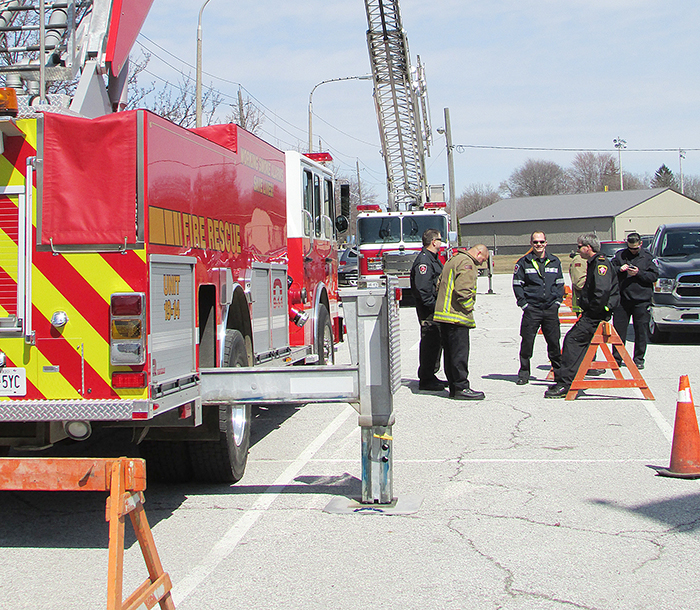
Chatham-Kent full-time firefighters are now working 24-hour shifts. It’s a trial program agreed upon by management and the union, and is designed with the firefighters’ health in mind.
It’s too early to tell if a new shift for local firefighters is an improvement – in terms of productivity and personal health.
That according to Chatham-Kent Fire Chief Ken Stuebing.
Professional C-K firefighters went onto a 24-hour shift plan at the start of the year. The round-the-clock shift structure replaced a rather confusing shift pattern – in terms of how to tell what squad was working when, as well as how it affected a firefighter’s internal clock.
“We were in a complicated shift pattern. You had a stretch of a long group of days on – three day shifts, three nights, 24 hours on and then time off,” Stuebing said.
He said the squads now work 24 hours straight, a shift pattern that has been moving across the province.
Chatham Mazda from Chatham Voice on Vimeo.
Stuebing said the old shift patterns wreaked havoc on firefighters. Studies show sleep deprivation is found to knock up to five years off a firefighter’s lifespan, he said.
Shawn Mifflin, president of the Chatham-Kent Professional Firefighters Association, said the push for the new shift pattern was for improved health of staff.
“The firefighters opted to switch over to the 24-hour shift as it has been proven medically to be a healthier system as opposed to the 10-hour days or 14-hour nights shifts that we used to do,” he said. “During the old shift (once every month), there was a rotation where we would be required to work 86 hours over a six-day period.”
Firefighters won’t be putting in any fewer hours on the job. Stuebing said over the course of a month or year, their hours at work won’t change.
Mifflin said there could be some perception the firefighters are seemingly always off duty.
“I believe to the average citizen it would appear that we would always be off duty or only working seven or eight days a month. However, prior to us working 24s we worked on average 42 hours per week. On the 24s we still work on average 42 per week.”
Stuebing said the old shift pattern didn’t let the body of a firefighter adjust to the different shifts.
“This (the 24-hour shift pattern) is something that affects the circadian rhythm much less,” he said.
Stuebing pointed to the night work as the problem.
“Your body doesn’t get a chance to adjust to the night shift. You need to get on nights for about two weeks before your body gets used to sleeping during the day,” he said.
“We found it easier for the body to stay up for 24 hours.”
But will those long shifts lead to decreased productivity and increased sick time?
There is no guaranteed slumber time during that 24-hour shift, he added.
“Fire departments have traditionally had the ability for people to relax late in the night,” he said. “But there is never any guarantee of sleep.”
He said management does have concerns this could impact productivity. He said there is a variety of performance metrics to gauge impact.
“You measure attendance, performance as far as response time is concerned, and number of injuries, and compare it to your data from the past,” he said. “But the reality is we don’t have any idea how it’s working. There’s just too small a sample size.”
Firefighters have only been on the shift pattern for just under four months.
Mifflin said he hasn’t received much information either.
“To date, I have not received much feedback from the firefighters, however, I have noticed that we are able to train more and for longer periods of time,” he said.
Stuebing said time will tell how effective the new shift pattern is.
“We’re supposed to work this shift pattern for a couple of years to see how it works out and if management or the association has a problem with it,” he said.
He said there is precedent for firefighters to work around the clock, however, pointing to the one 24-hour shift each squad had per month.
“This department, like a lot of other departments, had some form of a 24-hour shift. With four platoons, everybody did a 24-hour shift on a Sunday once a month.”






Ken, "working" around the clock is not exactly true. And, it is too bad fire admin has caved in to the wishes of a few and not the needs of the many.